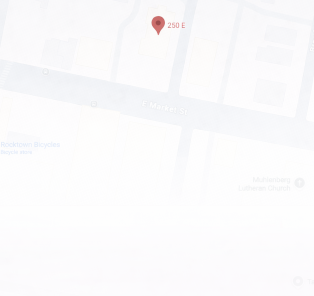The trucking industry is a highly regulated one. These various rules and regulations exist for one main reason: safety. There is no question that heavy commercial trucks and tractor trailers pose unique dangers for a number of reasons.
The Federal Motor Carrier Safety Administration has numerous regulations that apply to truck drivers and trucking companies. These regulations cover a variety of safety related topics, and they require truckers and their carriers to follow certain rules or else face a number of consequences. Violation of the rules can also be grounds for imposing civil liability if the tractor trailer driver causes an accident because of the rule violation. Because of that, it is important to know when FMCSA regulations apply.
Not every 18 wheeler on the road is covered by the FMCSA’s safety regulations. The regulations will apply if two separate requirements are met. First, the truck in question must be a certain size or a particular type of motor vehicle to be covered. Second, the truck in question must be involved in interstate commerce.
Because each of these standards has specific requirements, it is helpful to look at each of them in turn.
First, a truck must be a specific type of commercial vehicle to be covered. Vehicles that are covered by at least some portion of the FMCSR include:
- Weight: A vehicle that has a gross vehicle weight rating or gross combination weight rating of 10,001 pounds or more, whichever is greater. This can look at the actual size of the truck that is involved in the transportation. But it is really helpful to understand that the “combination” weight rating can apply to a trailer that is being pulled by a truck. So if a pickup truck is hauling a trailer that, when combined, puts the total weight of both above the limit, then the truck and trailer might be covered the federal safety regulations.
- Passengers for Pay: A vehicle that transports between 9 and 15 passengers (including the driver) for compensation. The federal safety rules will apply to this vehicle regardless of the weight of the vehicle.
- Passengers without Pay: A vehicle that transports 16 or more passengers, even if not for compensation. Again, the federal safety rules will apply to this vehicle regardless of the weight of the vehicle, and even if the driver or owner of the vehicle is transporting passengers for free.
- Hazardous Materials: A commercial vehicle of any size that transports hazardous materials and for which a hazardous materials placard is required.
Second, the rules apply to all commercial motor vehicles that “transport property or passengers in interstate commerce.”[i] “Interstate commerce” is any trade or transportation that occurs in one of three ways:
- Between a place inside a state to a place outside of that state. This means that transportation of a load from a place in one state to a place in another state will trigger the rules, regardless of how long the actual trip takes.
- Between two places in a state that goes through another state or an area outside of the United States. Crossing state lines will trigger the rules even if the pickup and drop off locations are both in the same state.
- Between two places inside one state “as part of trade, traffic, or transportation originating or terminating outside the State or the United States.” This can look at the entirety of the trip, not just one particular shift of the transport.[ii]
A trucker and motor carrier that meet these criteria will need to satisfy FMCSA regulations. When the FMCSA regulations apply, a truck driver and his or her employer (referred to as a motor carrier) will need to abide by a number of legal requirements. What can be troubling is that many motor carriers and their drivers might not have any idea that they are engaging in actions that constitute interstate commerce. They may believe that by staying mostly in one state that they are engaging in intrastate commerce.
Once the federal rules apply, motor carriers and their drivers must follow legal requirements that include:
- rules about controlled substances, including restrictions, testing, and suspension rules;
- hours of service regulations, including recording of hours driven and how the driver spends their time while on the clock;
- driver qualifications, including medical examinations, required knowledge, and required skills;
- inspection, maintenance, and repair, which includes rules regarding how a driver must conduct and complete various pre-trip and other driving inspections;
- rules regarding emergency operations and steps to take in the event the truck breaks down or must make an emergency stop; and
- driving and operation of commercial motor vehicles, including the parts and accessories necessary for safe operation.[iii]
For a legal consultation with a personal injury lawyer, call (434) 817-3100
Whether the FMCSA applies is an important consideration for injury cases involving tractor trailers. If the federal safety rules apply, the driver will need to follow these and other rules, and whether that happened can have a major impact on a legal case. Stated simply, the rules that apply to tractor trailers and their commercial drivers are much different than the rules that apply to drivers of regular passenger vehicles. It is vitally important for you to get an attorney who understands these rules, knows when these safety rules apply, and knows how to use the rules in a tractor trailer crash case to build the strongest possible case in court.
If you’ve been involved in an accident with a tractor trailer, called Robert E. Byrne, Jr. Bob is the first and only attorney in Virginia who is Board Certified in Truck Accident Law by the National Board of Trial Advocacy. Bob has deep experience handling tractor trailer cases and other commercial motor vehicle claims involving heavy trucks. He and the rest of our aggressive truck accident legal team can make sure you get the most compensation possible for the injuries, harms, and losses you suffered due to the actions of another.
If you have been involved in a truck crash, or if you are an attorney who is seeking guidance on a truck crash case, please reach out for a free consultation with Bob today.
[i] 49 C.F.R. § 390.3(a).
[ii] 49 C.F.R. § 390.5.
[iii] https://ask.fmcsa.dot.gov/app/answers/detail/a_id/104
Call (434) 817-3100 or complete a Case Evaluation form




